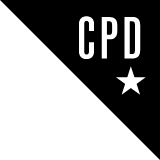A Perfect Storm
Gloomy clouds are gathering as rising inflation, spiking energy prices and the ongoing war in Ukraine combine to create a unique set of circumstances. Can a PR and content strategy help mitigate the looming macro risks? Lawrie Holmes investigates.
Dark clouds on the horizon; the gathering storm edging closer… there’s a pervading sense that rising inflation and energy prices bringing a cost-of-living crisis, combined with the effects of enduring war in Ukraine, could combine to create economic havoc.
But how much of a threat are these elements? How are they being viewed by leading players in the PR sector? And how are PR professionals looking to mitigate the dangers for themselves and their clients?
The headlines don’t make happy reading: as reported by the Office for National Statistics, the UK economy shrank in March and April – the first time it has contracted two months in a row since Covid struck – and the cost of filling up an average family car with petrol recently hit £100.
You as a firm need to be very professional, to be increasingly data driven, and to be able to back up the work you're doing with hard data.
“I think any company, no matter the industry, is having to take time to evaluate and plan given the current situation,” says John Merva, associate director of Hotwire Global. “And it seems like there’s something new to deal with on an almost daily basis. So it’s important to keep abreast of developments and their potential ramifications for the future. We need to be adaptable and flexible to navigate these issues.”
Clearly, PR firms will now be thinking about what strategies they’ll need to employ to stay resilient and how to advise clients through the maelstrom. Most industry practitioners would say that protecting firms and their clients go hand in hand, because the best way to retain clients is to go the extra mile with every relationship.
According to Merva, there’s been a growing demand for a more sophisticated offer - “combining marketing, media relations, data provision, social media and beyond,” along with a push for greater accountability around comms spend. “It’s not a secret that many organisations are having to consider where their comms spend goes, and that there’s more pressure than ever to be able to report ROI to boards.”

The onset of the Covid pandemic increased the need for a holistic approach by PR firms, including guidance for clients on how best to position themselves in a fast-changing environment, exacerbated by the looming storm. Tim Linacre, deputy chairman of Instinctif Partners, says: “If PR firms aren't seen to be adding value, clients may think this is a luxury, that PR is not something we need during tough times, and may cease spending money.
For good businesses, the recession should be an opportunity for you actually to get closer to clients.
“The way you can address that is by showing the client you are actually doing an outstandingly good job for them. That does require you as a firm to be very professional, to be increasingly data driven, and to be able to back up the work you're doing with hard data.
“You should also be able to look around corners to see trouble coming, to help clients manage risk and issues wherever they might be around the world. For good businesses, the recession should be an opportunity for you actually to get closer to clients,” he adds.
It may not be all doom and gloom. Philip Merrell, executive associate of Kreab Worldwide, says the firm has been advising clients in the renewable energy space on how to deliver messaging as fossil fuel energy prices increase. “There’s definitely more of an opportunity now for those providers,” he says.
Being closer to a client will also yield benefits where relationships are remunerated on a fixed annual retainer and inflation starts racing away. Being able to renegotiate fees more frequently will be more likely if there is a strong relationship in place- where it’s perceived as a partnership. If you’re only viewed as a provider of a service, it may be tougher to have that conversation.
Setting the tone
Being able to hand-hold clients through the changing economic landscape, means explaining how each of the themes, be it the cost-of-living crisis, energy prices rises or the continuing war in Ukraine will affect the public mood and consumer behaviour. Even if organisations are far removed from affecting people directly, being part of any supply chain will see changes eventually ripple through.

Any organisation can also be caught out in the social media age if their leader says something that doesn’t resonate with a community increasingly worried about these challenges. If a comment is considered totally out of step – to the point of being insulting – the effects could be catastrophic.
Neil Daugherty, senior managing director of Teneo, relates the example of former Chancellor Rishi Sunak who was recently asked how much his family paid for a loaf of bread. “The chancellor could not give a definitive answer as there were several types of bread in his house. That kind of response is Marie Antoinette-like ‘let them eat gluten free rye bread’ when the audience is thinking: ‘how do I put bread on the table?’
“I think what is important is recognising your audience and the financial pressures and worries they may be going through. If you’re preparing a chief executive of a listed business to go on the Today programme and they can’t tell you the price of a pint of milk, there’s a problem,” he says.
That level of understanding and empathy that PR firms need to project to their clients extends beyond the current economic conditions; what Daugherty likens to “a new Gatsby era”, with levels of global inequality not seen since the 1920s, to the broader social debate.
“Clients need to understand that not everyone is living in a liberal metropolitan elite bubble,” he says. “You've got to go out and spend time in places you wouldn't otherwise, where you get that insight by talking to customers or focus groups.”
The issue boils down to the question: Am I working for the type of clients I would recognise myself wanting to work for?
Aside from the wider economic impact of the war in Ukraine further exacerbating supply chain issues and contributing to global inflation, its effects have been felt directly in the PR industry. As part of its range of measures in response, the UK government prevented UK PR firms from advising Russian entities.
For some PR firms, earning up to a tenth of fees from Russian clients, this action brought a lucrative stream of work to an abrupt halt. But although many outfits will say their exposure to Russian money was minimal, the effects will continue to be felt – in a dampening effect on fees generally, but also in a wider examination of how UK firms service despots and kleptocrats. As Daugherty says: “The issue boils down to the question: Am I working for the type of clients I would recognise myself wanting to work for?”
Firms also need to consider in the light of the cost-of-living crisis how they’re meeting the challenges faced by staff – especially more junior employees. Daugherty says that although he believes his firm pays competitive rates to employees, a significant number of staff were given a one-off payment. “It was to compensate the impact of the cost of living on areas such as rent, travel costs where they’re going to be feeling the pinch more than a senior managing director would be.”
Says Linacre, “If we get to a stage where inflation is running at 10% per annum, just doing the annual pay review, particularly for junior staff, is very tough. So devoting a bit more effort and resources to looking after the juniors as opposed to looking after the seniors has to be right.”
He says there’s also a longer-term strategic element to bear in mind, as younger staff will be likely to jump ship when the market changes if they feel unloved. “It’s a chance for PR firms to spend time and effort investing in our people, making sure they feel wanted and are recognised for doing a good job.”
How quickly firms can adapt to the new normal remains to be seen. But doing the right thing on a number of levels would appear to be the correct course of action for PR firms. As the storm clouds gather, persuading their clients to think and act in the same way wouldn’t go amiss either.
.jpg&w=728&h=90&maxW=&maxH=&zc=1)

